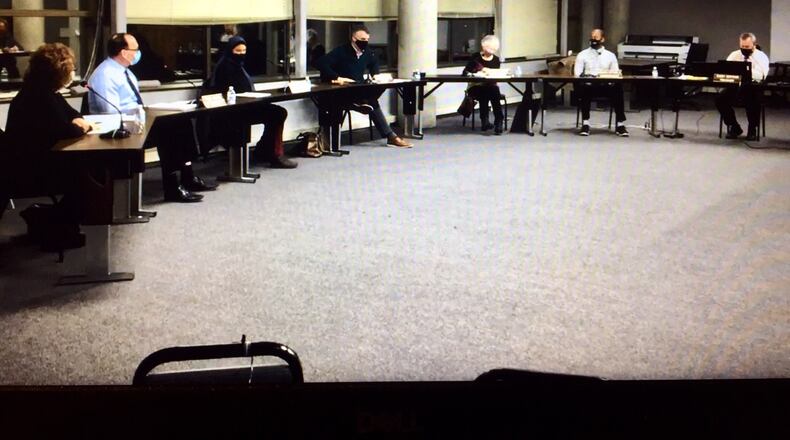There are too many unknowns, Middletown Schools Treasurer Randy Bertram told the school board during its online meeting.
Paramount among those is the unknown level of state funding the district would receive under Ohio’s next biennium budget, which saw earlier this month the start of preliminary negotiations among legislators that will led to state budget’s final approval by June 30.
The rising costs of the coronavirus pandemic, rising mandated funding for private school vouchers through the state’s EdChoice program and a looming budget deficit prompted the school board discussion.
“If we do nothing now, we are going to be broke in 2024,” Bertram told board members. “But under these cuts ($2.5 million) we won’t have to ask for a levy in November.”
Superintendent Marlon Styles Jr. said “our target is to avoid a levy this fall.”
The proposed cuts, which could include reductions among teachers and non-teaching staffers as well as shrinking school bus services, will be discussed further at the board’s next regular meeting on Feb. 22, which unlike board work sessions allows for community input and board votes.
If the $2.5 million of cuts in operating costs are approved by board action at its next meeting, they would take effect during the 2021-22 school year.
The 6,300-student district’s annual operating budget is more than $76 million. In April 2020, the district reduced its operating budget by $2 million.
Bertram said any details on reducing the number of teachers or non-teaching staff are still to be determined.
Middletown Board of Education President Chris Urso cautioned the school community not to jump to any conclusions, noting there is time to explore options.
In Ohio, ballot tax issues for the fall election are not required to be filed until early August.
“Any decision we make is reversible,” Urso said.
Among the options suggested by district officials for school board consideration include $1.1 million in unspecified personnel cuts, expanding the no-school bus service radius of each school from the current one mile to two miles for a savings of $773,000 per year.
Other budget reduction proposals include raising current class sizes from 27 students in kindergarten through fifth grade to 30, which officials said would save $250,000 annually.
Board Vice President Cathie Mulligan opposed reducing busing.
“I feel very strongly against altering busing,” she said.
Fellow member Todd Moore said discussions of a new school levy are premature especially given the historic disruptions in school classes since the onset of the coronavirus last March.
“It’s not productive to talk about a levy now,” said Moore.
But Styles said “we are trying to be fiscally responsible as possible with taxpayers’ dollars.”
About the Author

